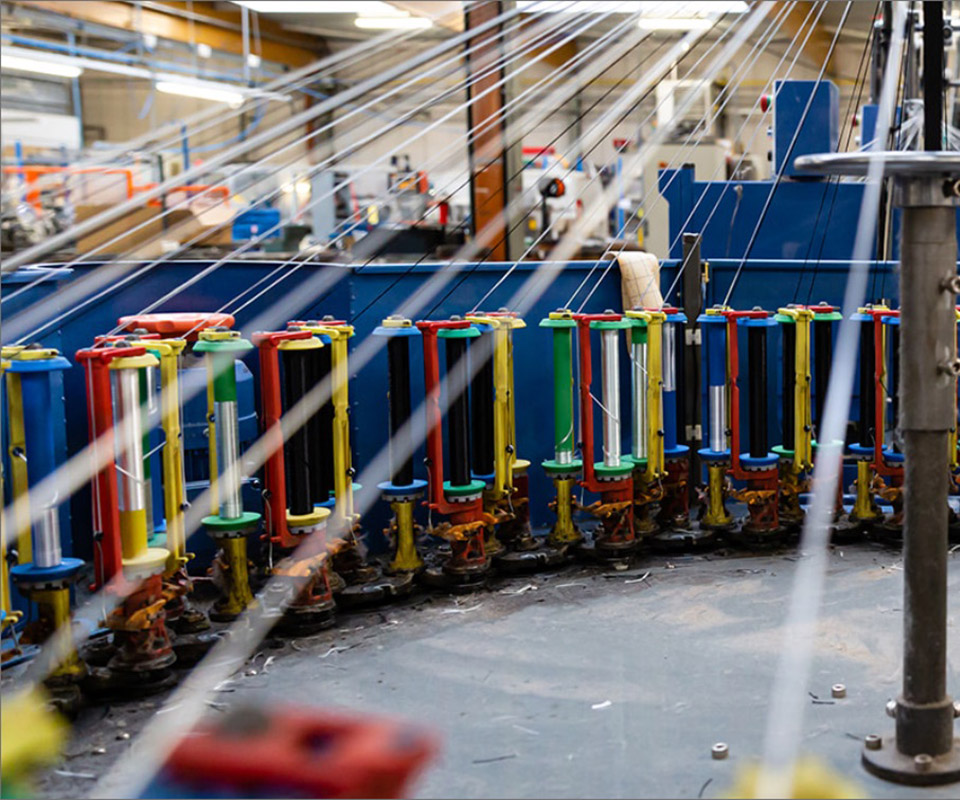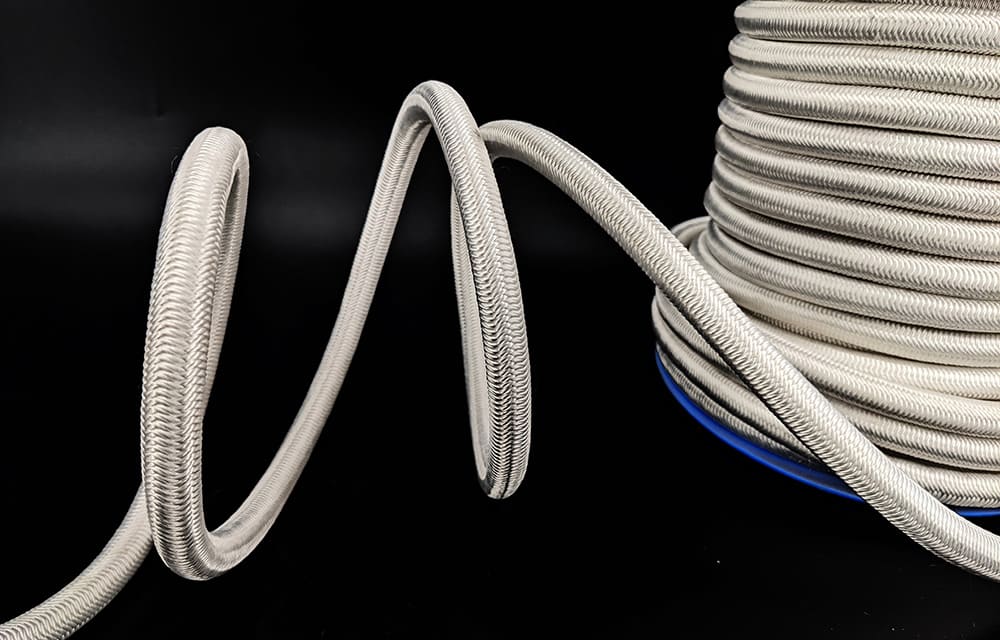
Our glass modelsArtificial & Mineral Material
An inorganic fiber
We are alsomanufacturers!
On request or from the catalogue, we are able to associate all our textile articles with an infinite choice of terminations: plastic buckles, metal parts, hooks, tilting ends, thimbles, carabiners... Our technical team is at your disposal for all your developments. .
Characteristics Of our Glass models
High density
2,6
Zero recovery rate
glass does not absorb water
Excellent flame heat behavior
totally non-flammable material. Softens at 600°C and melts at 1200°C
High tenacity and mechanical resistance
90 to 130 Cn/tex depending on type of glass
Elongation
Between 3 and 5%
Inert against common chemicals
Excellent thermal and acoustic insulation
Almost impossible to dye
Excellent lightfastness
Our Glass models





